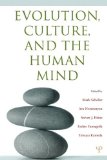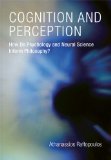August 30, 2009

The Wealth of Networks by Yochai Benkler (Yale University Press, 2006) is one of the books cited in Clay Shirky’s Here Comes Everybody (that I made a “webibliography” for).
Through Creative Commons I found the wiki for Wealth of Networks, which offers the full text of the book in pdf, html and other formats.
Here is the product description for this title from Yale University Press:
With the radical changes in information production that the Internet has introduced, we stand at an important moment of transition, says Yochai Benkler in this thought-provoking book. The phenomenon he describes as social production is reshaping markets, while at the same time offering new opportunities to enhance individual freedom, cultural diversity, political discourse, and justice. But these results are by no means inevitable: a systematic campaign to protect the entrenched industrial information economy of the last century threatens the promise of today’s emerging networked information environment.
In this comprehensive social theory of the Internet and the networked information economy, Benkler describes how patterns of information, knowledge, and cultural production are changing—and shows that the way information and knowledge are made available can either limit or enlarge the ways people can create and express themselves. He describes the range of legal and policy choices that confront us and maintains that there is much to be gained—or lost—by the decisions we make today.
See also: List of books available under a Creative Commons license
Comments (0)
- culture
August 29, 2009
New from Oxford University Press: 
Seeing Through Illusions by Richard L. Gregory (“Eye and Brain“)
(link for UK)
Product description from the publisher:
In Seeing Through Illusions, renowned scientist Richard Gregory explores what visual illusions can tell us about how our brains perceive the world. Looking at optical tricks and many other extraordinary phenomena, Gregory explains how scientists use these anomalies to peel back the normal processes of perception, and to reveal how the brain performs the remarkable feat of representing the real world with the kind of richness and accuracy which we experience–and take for granted–every day. And these visual illusions not only tell us about how our brain works, but they also reveal the brain’s evolutionary past. Traces of earlier stages remain buried within our brains like stratified layers, laid down through evolutionary time, and Gregory shows how the study of different kinds of illusions reveals glimpses of these layers. Interweaving science with reflections on art and philosophy, fascinating psychological case-studies, and some amazing visual phenomena, this book addresses questions about our brains that have puzzled scientists and philosophers for centuries.
See also: Author’s website
Comments (0)
- new books
August 22, 2009

Evolution, Culture, and the Human Mind is forthcoming from Psychology Press, with a prospective release date of Aug. 25. Editors are Mark Schaller, Ara Norenzayan, Steven J. Heine, Toshio Yamagishi, and Tatsuya Kameda.
(link for UK)
Product description from the publisher:
An enormous amount of scientific research compels two fundamental conclusions about the human mind: The mind is the product of evolution; and the mind is shaped by culture. These two perspectives on the human mind are not incompatible, but, until recently, their compatibility has resisted rigorous scholarly inquiry. Evolutionary psychology documents many ways in which genetic adaptations govern the operations of the human mind. But evolutionary inquiries only occasionally grapple seriously with questions about human culture and cross-cultural differences. By contrast, cultural psychology documents many ways in which thought and behavior are shaped by different cultural experiences. But cultural inquires rarely consider evolutionary processes. Even after decades of intensive research, these two perspectives on human psychology have remained largely divorced from each other. But that is now changing — and that is what this book is about.
Evolution, Culture, and the Human Mind is the first scholarly book to integrate evolutionary and cultural perspectives on human psychology. The contributors include world-renowned evolutionary, cultural, social, and cognitive psychologists. These chapters reveal many novel insights linking human evolution to both human cognition and human culture – including the evolutionary origins of cross-cultural differences. The result is a stimulating introduction to an emerging integrative perspective on human nature.
Comments (1)
- cognitive science,culture,mind,new books,psychology
August 21, 2009
Cognition and Perception: How Do Psychology and Neural Science Inform Philosophy? (Bradford Books) by Athanassios Raftopoulos (MIT Press, 2009)
(link for UK)
Product description from the publisher:
In Cognition and Perception, Athanassios Raftopoulos discusses the cognitive penetrability of perception and claims that there is a part of visual processes (which he calls “perception”) that results in representational states with nonconceptual content; that is, a part that retrieves information from visual scenes in conceptually unmediated, “bottom-up,” theory-neutral ways. Raftopoulos applies this insight to problems in philosophy of science, philosophy of mind, and epistemology, and examines how we access the external world through our perception as well as what we can know of that world.
To show that there is a theory-neutral part of existence, Raftopoulos turns to cognitive science and argues that there is substantial scientific evidence. He then claims that perception induces representational states with nonconceptual content and examines the nature of the nonconceptual content. The nonconceptual information retrieved, he argues, does not allow the identification or recognition of an object but only its individuation as a discrete persistent object with certain spatiotemporal properties and other features. Object individuation, however, suffices to determine the referents of perceptual demonstratives. Raftopoulos defends his account in the context of current discussions on the issue of the theory-ladenness of perception (namely the Fodor-Churchland debate), and then discusses the repercussions of his thesis for problems in the philosophy of science. Finally, Raftopoulos claims that there is a minimal form of realism that is defensible. This minimal realism holds that objects, their spatiotemporal properties, and such features as shape, orientation, and motion are real, mind-independent properties in the world.
Table of contents & sample chapters available at MIT Press
Comments (0)
- cognitive science,new books,philosophy of mind







